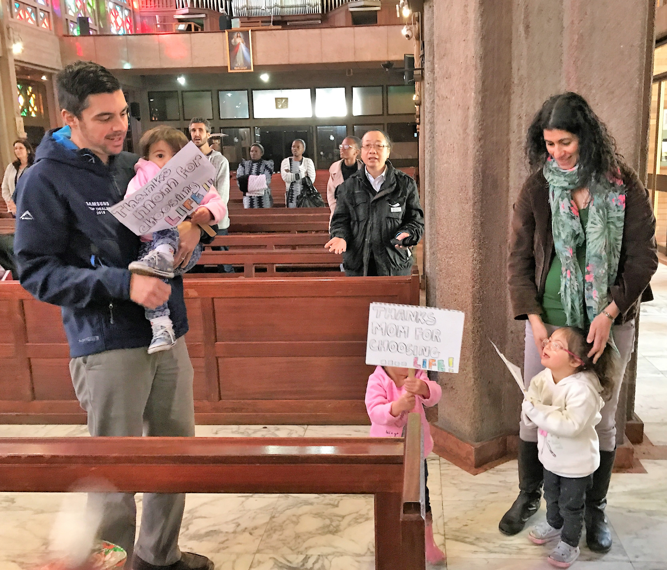April 15. TUESDAY OF HOLY WEEK. Scripture: The director read the imaginary situation in a short story and then the passage from Luke 19: 41-44 and asked his listeners again to consider what loving qualities of Jesus are displayed there?
Jesus made his way up Northcliff hill. He loved hills where he so often prayed to his Father at any time but now he was coming to take a look around. He could see all around him for miles and miles. To the north there were parts of Johannesburg, Randburg, Midrand and almost as far as Pretoria. To the east was the skyline of central Johannesburg and still some mine dumps. To the south, towards Soweto, through the smog he could see houses, thousands of them, some quite modern, others poor shacks. To the west there were hills that reminded him how this city had sprung up in the wake of a gold rush chasing after money. Jesus sighed. Each year for nearly 2000 years he had sighed and wept over great cities of the world. Would they never learn? Would they never come to realise that the way of the kingdom is to be one of ongoing reconciliation. There had been greater hope here some 30 years ago. It had faded but he wasn’t going to give up. “Love one another, as I have loved you,“ he kept on saying to anyone who would listen.
Discussion, sharing, action. The director then said, “Do we as families take stock from time to time and consider our own future and that of our city, country and world in this time of human, political and environmental turmoil? What is the loving thing to do as Jesus did? Is it still a good time through our own love to bring children into the world, children to whom we can pass on our hopes and dreams for God’s kingdom? At the same time there are too many occasions when through irresponsible sex unwanted children are conceived. Some are denied the right to be born and others denied the love that is the right of every child. Are children signs of hope?“
Pope Francis: Looking to the future with hope entails having enthusiasm for life and a readiness to share it. Sadly, in many situations this is lacking. A first effect of this is the loss of the desire to transmit life. A number of countries are experiencing an alarming decline in the birthrate as a result of today’s frenetic pace, fears about the future, the lack of job security and adequate social policies, and social models whose agenda is dictated by the quest for profit rather than concern for relationships.
Openness to life and responsible parenthood is the design that the Creator has implanted in the hearts and bodies of men and women, a mission that the Lord has entrusted to spouses and to their love. It is urgent that responsible legislation on the part of states be accompanied by the firm support of communities of believers and the entire civil community. For the desire of young people to give birth to new sons and daughters as a sign of the fruitfulness of their love ensures a future for every society. This is a matter of hope: it is born of hope and it generates hope. SNC 9







Recent Comments